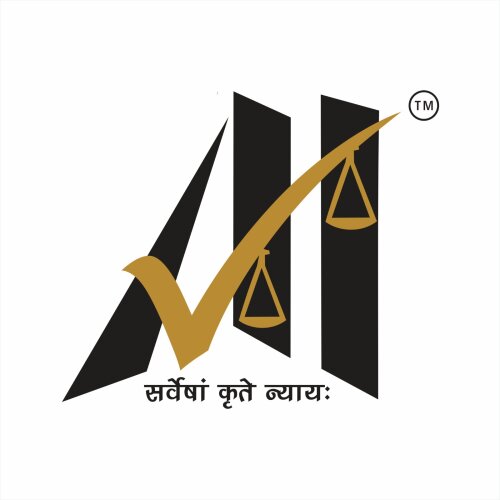Best Communications & Media Law Lawyers in Jaipur
Share your needs with us, get contacted by law firms.
Free. Takes 2 min.
List of the best lawyers in Jaipur, India
About Communications & Media Law in Jaipur, India
Communications & Media Law in Jaipur, India encompasses a wide array of legal regulations and guidelines governing the dissemination of information through various mediums such as television, radio, internet, and print. The legal framework aims to balance freedom of speech against responsible journalism, protection of intellectual property, and prevention of misinformation. In Jaipur, as in the rest of India, this field is particularly dynamic due to the rapid advancement in technology and the growing influence of digital media.
Why You May Need a Lawyer
There are several common situations where individuals or organizations may require legal assistance in Communications & Media Law:
- Defamation Claims: If you are accused of defamation or want to file a defamation claim.
- Intellectual Property: To protect your creative works or to resolve disputes over copyright, trademarks, or patents.
- Content Licensing: If you need legal assistance in licensing content for media usage.
- Employment Contracts: Drafting or reviewing contracts for media professionals.
- Regulatory Compliance: Ensuring compliance with local and national regulations in broadcasting, advertising, and digital content.
- Privacy Issues: Addressing concerns related to the misuse of personal data or digital rights.
- Mergers & Acquisitions: Legal guidance during media-related mergers and acquisitions.
Local Laws Overview
Jaipur operates under the broader legal framework of India for Communications & Media Law, which includes laws and guidelines issued by various statutory bodies and regulatory authorities. Key aspects include:
- The Information Technology Act, 2000: Governs digital communication and cyber-related offenses.
- The Cable Television Networks (Regulation) Act, 1995: Regulates cable television networks to ensure their operation in accordance with the law.
- The Press Council Act, 1978: Establishes the Press Council of India to oversee journalistic standards.
- TRAI Regulations: The Telecom Regulatory Authority of India regulates telecommunications, including broadcasting and cable services.
- Copyright Act, 1957: Addresses issues related to intellectual property in media content.
- Cinematograph Act, 1952: Regulates the certification of films for public exhibition.
Frequently Asked Questions
What is defamation under Communications & Media Law?
Defamation refers to the act of making false statements about a person or organization that can harm their reputation. It can be in written (libel) or spoken (slander) form.
How can I protect my intellectual property in media?
To protect your intellectual property, you can apply for copyrights, trademarks, or patents depending on the type of work. Legal professionals can help you navigate the regulatory process.
What are the penalties for violating Communications & Media Laws?
Penalties may include fines, imprisonment, and revocation of licenses, depending on the severity and nature of the violation.
Can I use content from the internet without permission?
No, using someone else's content without their permission typically violates copyright laws. Always seek proper licensing or permission.
How can I ensure my media complies with local regulations?
Consult legal professionals who specialize in media law to review your content and ensure compliance with local and national regulations.
What should I do if my privacy is violated by media?
In cases of privacy violations, you can file a complaint with the relevant regulatory body and seek legal remedy through courts.
What is 'fair use' in the context of media law?
'Fair use' is a defense against copyright infringement claims, allowing limited use of copyrighted material without permission for purposes such as criticism, comment, news reporting, teaching, and research.
What are the broadcasting standards applicable in Jaipur?
The broadcasting standards applicable in Jaipur are primarily governed by guidelines issued by the Ministry of Information and Broadcasting and the Telecom Regulatory Authority of India (TRAI).
How do I file a complaint with the Press Council of India?
You can file a complaint to the Press Council of India by submitting a detailed written complaint highlighting the violation of journalistic standards.
Are there any local bodies in Jaipur that regulate media content?
While there are no specific local bodies in Jaipur, the state government can issue guidelines, and the broader regulatory framework established by national bodies like TRAI and the Ministry of Information and Broadcasting applies.
Additional Resources
Here are some resources and organizations that may be helpful:
- Press Council of India: Oversees the conduct of the press and journalism standards.
- Ministry of Information and Broadcasting: Regulates broadcasting, cable television, and online media.
- Telecom Regulatory Authority of India (TRAI): Manages telecommunications and broadcasting services.
- Indian Copyright Office: Handles copyright registrations and related issues.
Next Steps
If you need legal assistance in Communications & Media Law, it is advisable to:
- Consult with a legal professional specializing in Communications & Media Law.
- Gather all relevant documentation and evidence related to your issue.
- Schedule a consultation to discuss your case in detail and understand possible legal remedies.
- Stay informed about the latest developments and updates in Communications & Media Law.
Lawzana helps you find the best lawyers and law firms in Jaipur through a curated and pre-screened list of qualified legal professionals. Our platform offers rankings and detailed profiles of attorneys and law firms, allowing you to compare based on practice areas, including Communications & Media Law, experience, and client feedback.
Each profile includes a description of the firm's areas of practice, client reviews, team members and partners, year of establishment, spoken languages, office locations, contact information, social media presence, and any published articles or resources. Most firms on our platform speak English and are experienced in both local and international legal matters.
Get a quote from top-rated law firms in Jaipur, India — quickly, securely, and without unnecessary hassle.
Disclaimer:
The information provided on this page is for general informational purposes only and does not constitute legal advice. While we strive to ensure the accuracy and relevance of the content, legal information may change over time, and interpretations of the law can vary. You should always consult with a qualified legal professional for advice specific to your situation.
We disclaim all liability for actions taken or not taken based on the content of this page. If you believe any information is incorrect or outdated, please contact us, and we will review and update it where appropriate.













